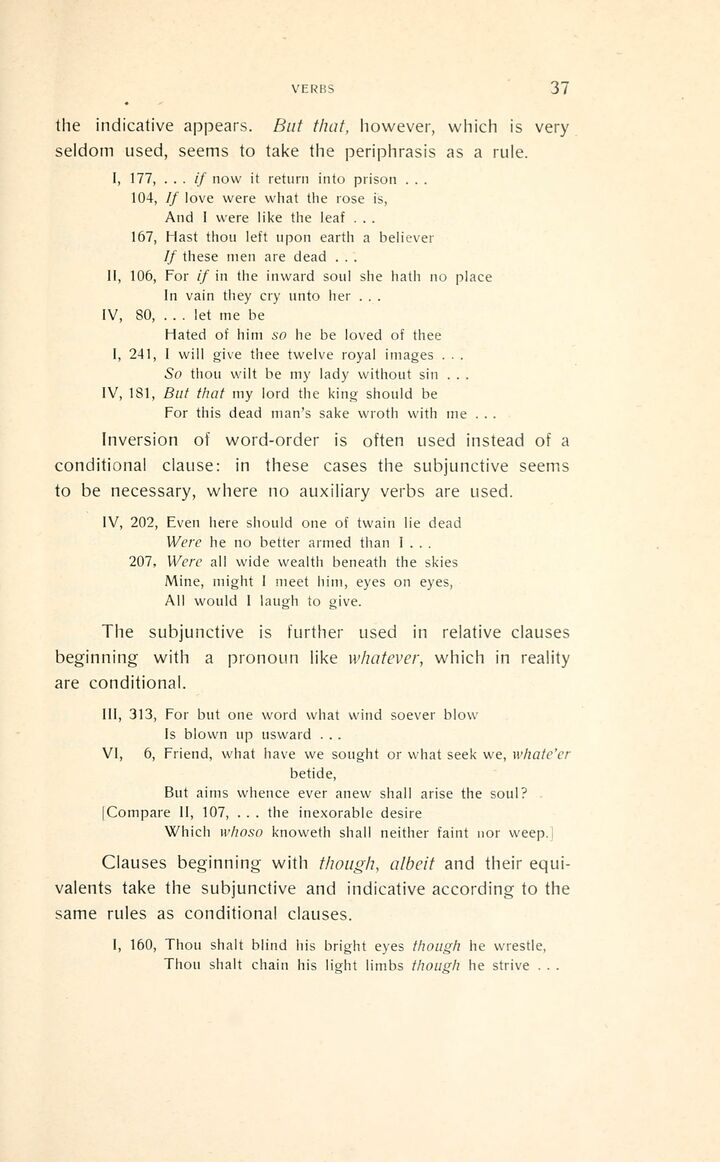
Full resolution (JPEG) - On this page / på denna sida - Sidor ...

<< prev. page << föreg. sida << >> nästa sida >> next page >>
Below is the raw OCR text
from the above scanned image.
Do you see an error? Proofread the page now!
Här nedan syns maskintolkade texten från faksimilbilden ovan.
Ser du något fel? Korrekturläs sidan nu!
This page has never been proofread. / Denna sida har aldrig korrekturlästs.
VERBS —ADVERBS 37
the indicative appears. But that, however, which is very
seldom used, seems to take the periphrasis as a rule.
I, 177, ... if now it return into prison . . .
104, If love were what the rose is,
And 1 were like the leaf . . .
167, Hast thou left upon earth a believer
If these men are dead . . .
II, 106, For if in the inward soul she hath no place
In vain they cry unto her . . .
IV, 80, ... let me be
Hated of him so he be loved of thee
I, 241, I will give thee twelve royal images . . .
So thou wilt be my lady without sin . . .
IV, 181, But that my lord the king should be
For this dead man’s sake wroth with me . . .
Inversion of word-order is often used instead of a
conditional clause: in these cases the subjunctive seems
to be necessary, where no auxiliary verbs are used.
IV, 202, Even here should one of twain lie dead
Were he no better armed than I . . .
207, Were all wide wealth beneath the skies
Mine, might I meet him, eyes on eyes,
All would 1 laugh to give.
The subjunctive is further used in relative clauses
beginning with a pronoun like whatever, which in reality
are conditional.
III, 313, For but one word what wind soever blow
Is blown up usward . . .
VI, 6, Friend, what have we sought or what seek we, whate’er
betide,
But aims whence ever anew shall arise the soul?
|Compare II, 107, . . . the inexorable desire
Which whoso knoweth shall neither faint nor weep.
Clauses beginning with though, albeit and their
equivalents take the subjunctive and indicative according to the
same rules as conditional clauses.
I, 160, Thou shalt blind his bright eyes though he wrestle,
Thou shalt chain his light limbs though he strive . .
<< prev. page << föreg. sida << >> nästa sida >> next page >>